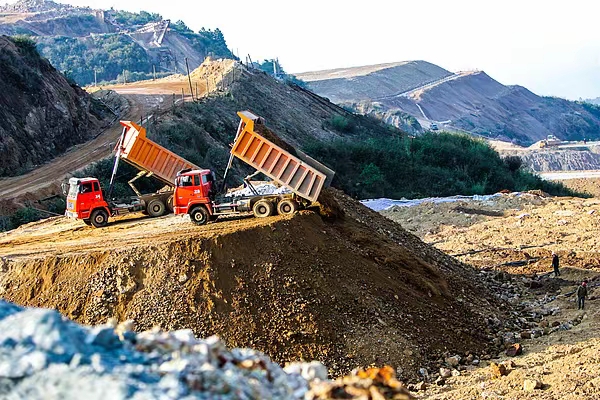
In today's automotive manufacturing industry, rare earths, as an indispensable key raw material, are profoundly influencing the development pattern of global automotive companies. With the increasingly prominent shortage of rare earths, its negative impact on global car companies has gradually surfaced, from production and operation to technology research and development, from cost control to market layout, many aspects have been strongly impacted.
Rare earth elements are known as "industrial vitamins" and play a crucial role in automobile production, especially in the manufacturing of new energy vehicles. In traditional fuel vehicles, rare earths are used to manufacture components such as exhaust purification catalysts, permanent magnet motors, sensors, etc., which help reduce exhaust emissions, improve engine efficiency, and enhance vehicle handling performance. In the field of new energy vehicles, the importance of rare earths is self-evident. Taking pure electric vehicles as an example, each vehicle requires approximately 5-10 kilograms of rare earth permanent magnet materials, such as neodymium iron boron, which are key to manufacturing high-performance motors and directly determine the power density, acceleration performance, and range of electric vehicles. Meanwhile, rare earth elements are also an important component of lithium battery electrode materials, which are crucial for improving battery capacity, stability, and service life.
The most direct impact of rare earth shortage on global car companies is production obstruction. Many car companies have had to suspend their production lines due to the inability to obtain sufficient rare earth raw materials in a timely manner, resulting in interruptions in the supply of key components. For example, Suzuki Motor Corporation in Japan temporarily suspended some of its car production lines due to the delayed delivery of rare earth material components from China; The rare earth magnet inventories of India's three major car companies, Tata, Maruti Suzuki, and Mahindra, can only sustain normal production for three days. If they cannot be replenished in a timely manner, a complete shutdown will be difficult to avoid; Ford Motor Company was also forced to suspend production of its main SUV model, the Explorer, due to a shortage of rare earths.
The rising cost is also a major challenge for global car companies due to the shortage of rare earths. Due to the tight supply of rare earths, the market is in short supply, and the prices of rare earths and related products have skyrocketed. The price of dysprosium in Europe has skyrocketed by 200% in a short period of time, while the price of terbium has exceeded 3000 US dollars per kilogram. The rise in rare earth prices directly increases the raw material procurement costs of car companies, and this cost increase will be transmitted upstream and downstream along the industrial chain. On the one hand, in order to maintain profits, component suppliers will transfer cost pressure to car companies, resulting in a significant increase in the cost of purchasing components for car companies; On the other hand, in order to absorb the cost increase, car companies may raise the overall vehicle price, but this may also affect the market competitiveness and sales volume of their products. If the selling price is not increased, the profit margin of the enterprise will be severely compressed, and even losses may occur. In the current fiercely competitive automotive market, the rise in costs undoubtedly puts enormous operational pressure on car companies.
From the perspective of market layout, the shortage of rare earths has prompted global car companies to reconsider their supply chain layout. In order to reduce supply chain risks and ensure stable supply of rare earth raw materials, some multinational automakers and component suppliers plan to adjust their supply chains and transfer the production of components related to rare earth products to China, in order to better utilize China's supply chain advantages. But this adjustment is not an easy task, as it not only requires facing differences in policies, regulations, cultures, etc. in different countries and regions, but may also involve high relocation costs and the risk of supply chain reintegration. In addition, some car companies are trying to develop more suppliers and supply chain systems to achieve diversification of rare earth supply chains.
The negative impact of rare earth shortage on global car companies is comprehensive and far-reaching. It not only threatens the normal production and operation and cost control of car companies, but also hinders the advancement of technology research and development and market layout. Faced with this dilemma, global car companies need to take active measures to strengthen cooperation with suppliers, optimize supply chain management, increase investment in technology research and development, and seek alternative materials and technologies. At the same time, governments of various countries need to strengthen policy coordination and international cooperation to jointly promote the rational development and utilization of rare earth resources, in order to alleviate the impact of rare earth shortage on the automotive industry and ensure the sustainable development of the global automotive industry.

On January 4th local time, Trump warned India that if it does not limit its purchase of Russian oil, the United States will continue to raise tariffs on Indian products. Trump's latest warning sent shockwaves through the Indian financial market in just one day.
On January 4th local time, Trump warned India that if it do…
In October 2025, the US trade deficit narrowed unexpectedly…
According to the British media CoinJournal, recently, due t…
In January 2026, US President Trump once again set his sigh…
Europe is facing a crucial strategic choice: In the face of…
On New Year's Day 2026, BMW China announced a "systematic v…